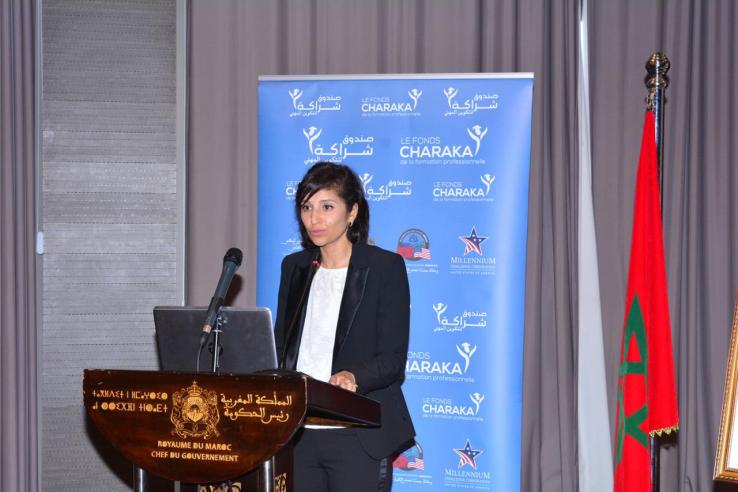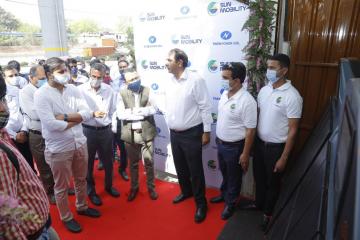
Bringing data into Moroccan policymaking

In this post, Hana Lakhdar Gazal (Deputy Director, Morocco Employment Lab) describes her past work with the Moroccan government to institutionalize data-driven policymaking and how it inspired her to pursue this further at J-PAL.
Prior to joining J-PAL and the Morocco Employment Lab, I have spent over fourteen years working in international development and in the public sector in France and Morocco. I have worked on development projects in Western Africa, in consultancy for various ministries in France and Morocco, for the World Bank, the African Development Bank (for the Prime Minister’s Office in Morocco) and the Millennium Challenge Account in Morocco.
This varied and in-depth experience was an opportunity to work closely with city councils, various ministries, development agencies, NGOs, and the private sector to make an impact throughout public policy. My time working with the Moroccan government deepened my conviction in the importance of data-driven policymaking and inspired me to pursue this further in my current role at the Morocco Employment Lab under J-PAL Middle East and North Africa (MENA).
Building a data-driven monitoring system in Morocco
My mission within the Prime Minister's Office in Morocco was to set up a delivery unit within the government capable of establishing a reporting framework to support decision-making for key projects and reforms in the government agenda.
The objective was to collect information on the fly to feed into a reporting system for the Prime Minister, while supporting the ministries involved in the implementation of these key projects and reforms to produce data, analyze and interpret it, and submit it to the Prime Minister to inform his decisions. This data-driven approach was of great help to the policymakers as they worked to achieve impact, since it helped them monitor their efforts, request arbitration, or even identify pain points that impede implementation.
Periodically, the Prime Minister would call his Ministers for a follow-up meeting and go through the progress and priorities for each key project. The monitoring tool we developed was thus a very efficient way to promote the alignment of public policies towards efficient policymaking.
This experience had its challenges, as the government was still coming around to the idea of including a data-based approach in public policy. Even if this is still perceived as a constraint in the administration rather than a lever, which might hinder efficient action and impact, the policymakers I worked with were very willing to participate in working sessions to improve reporting and adjust their actions accordingly. With their cooperation, we managed to get the delivery unit project up and running, and this unit is still active and producing useful data today.
Bringing a scientific approach to public policy at J-PAL MENA
My experience working with the Moroccan government has highlighted the need for advocacy, awareness raising, and capacity building in data collection, use, and analysis within government.
That’s why the work that we are conducting at J-PAL MENA and the Morocco Employment Lab through evaluation, testing, and driving impact through improved public policies is necessary. Conducting research on employment, producing evidence, and setting up training paths for the key stakeholders in Morocco seems to be a very efficient way to onboard them in a new dynamic in policymaking.
Since the action plan of the Employment Lab aims to implement a culture of evidence in the development of public policies, I can say that my experience at the Prime Minister's Office has been helpful on several levels. It’s helped me to understand policymaking culture in Morocco, the constraints that policymakers face in making decisions, and what their expectations may be when entering conversations. The more we understand how data can be used in the development of public policy, the better we will be able to calibrate our actions to better inform public decision-makers.


